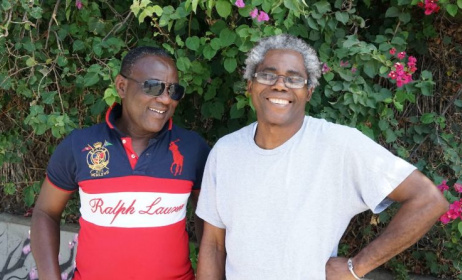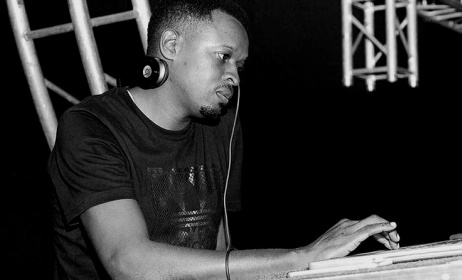FEMUA: A guide to Ivory Coast‘s favourite music celebration
Anoumabo is a bustling and historic neighbourhood in the commune of Marcory, located in the southern part of Abidjan. Every year, it is lit up by FEMUA, or Festival des Musiques Urbaines d’Anoumabo in French. Founded in the early 20th Century, Anoumabo was initially a fishermen’s village inhabited by the Ebrié people, and over time, the village grew to become a melting pot of various ethnic groups, contributing to the unique cultural heritage of the area.
 Ivorian rapper Didi B performing at FEMUA 2023. Photo: FEMUA
Ivorian rapper Didi B performing at FEMUA 2023. Photo: FEMUA Roseline Layo, who also spoke at the event, performing at this year’s festival in Anoumabo. Photo: FEMUA
Roseline Layo, who also spoke at the event, performing at this year’s festival in Anoumabo. Photo: FEMUA French-Ivorian rapper Safarel Obiang was a crowd favourite at FEMUA 2023. Photo: FEMUA
French-Ivorian rapper Safarel Obiang was a crowd favourite at FEMUA 2023. Photo: FEMUA FEMUA draws thousands of people every year and is considered as one of West Africa’s biggest music celebrations. Photo: FEMUA
FEMUA draws thousands of people every year and is considered as one of West Africa’s biggest music celebrations. Photo: FEMUA
Today, Anoumabo is widely known as the birthplace of the famous Ivorian music group Magic System, led by A'salfo, the founder of FEMUA. The neighbourhood has become synonymous with the vibrant urban music scene in the Ivorian capital. Fifteen years in the making, the aim of the festival is to promote African music and culture, and to raise awareness about social and environmental issues.
Music has always played a crucial role in the cultural identity of Abidjan. In the late 1990s, the city’s music scene was revolutionised by Magic System, which combined traditional African rhythms with modern electronic beats, creating a unique sound called zouglou. Magic System’s infectious tunes and energetic performances quickly gained international attention, turning A'salfo and his bandmates into one of Africa’s most well-known music groups. Their most popular hit, ‘Premier Gaou’, remains a classic anthem of Ivorian music and has recently been brought back into the limelight in new parts of the world by electronic music stars like Francis Mercier, Black Motion and Nitefreak.
Over the years, Magic System’s success has inspired many other local artists to pursue their passion for music and has significantly contributed to the development of the urban music scene in Abidjan.
If you ever make it down to Anoumabo for FEMUA, below is a quick guide to help you navigate the festival and learn a little something along the way.
What to expect
Being one of the largest West African festival-conference to date, FEMUA turns out large crowds and plenty of opportunities to learn about the beauty and cultural heritage of Ivory Coast, along with its chosen partner country, which happened to be Togo in 2023. FEMUA takes place over several days and features a diverse range of musical styles, including all sorts of traditional African music, reggae, hip hop and pop. Each time the festival is held, awareness and funds are raised for a specific cause, such as education, health or the environment. In the past, FEMUA has supported initiatives such as the construction of schools and hospitals, the distribution of mosquito nets to prevent malaria, and the promotion of renewable energy – showing the local community just how beneficial the arts can be in changing lives.
During the first few days, you’ll be treated to showcases that highlight the connections between neighbouring countries in the region, through a series of workshops and shows called Carrefour Jeunesse – the youth focus. In one such workshop, artists such as Roseline Layo and KS Bloom geared up to talk about their careers, entrepreneurship opportunities and how social media came to their aid.
What to learn
There are a few spaces to enjoy at the festival grounds, which are held at the National Institute of Youth and Sports (Institut National de la Jeunesse et des Sports), better known as INJS Marcory. The Village Stage has thousands of plastic chairs and tables ready to be commandeered, lined with stalls known as maquis ready to serve you. Present are upcoming artists such as Oprah, Josée Delatour and Defty, showing their stuff in the hope of being booked for the equally massive Main Stage the following year. While you’re enjoying the zouglou tributes and showcases, kids can keep busy at the FEMUA Kids area, where jumping castles, slides and roundabouts are monitored for hours on end.
Since the festivities start early in the day, you’ll have time to get to know a bit of the local lingo. In Anoumabo, French and the local dialect Nouchi are common. Nouchi appeared in Abidjan toward the end of the 1970s, coming from the Manding words nou (nostrils) and chi (hairs) or ‘nose-hairs’, a nickname used to describe street kids. A mixture of French, English, Spanish, Dioula, Baoulé, Guéré and many more dialects and phrases are combined to form a street-savvy tongue in working-class neighbourhoods, which always comes in handy when ordering a drink from the local sellers.
What to eat
Speaking of drinks, be mindful that the beverages at the Village Stage don’t come in singles, so bring your friends along to help you stave off the constant heat. Affordable and abundant, the local beer called Bock is usually referred to as “La 66” (le soixante six) in Nouchi, so show off your newfound linguistic skills here.
To eat, alloco (plantain), attiéké (fermented cassava), poisson braisé (grilled fish) and boiled eggs make for delicious snacks made fresh every day. Most importantly, Ivory Coast is the world’s largest producer of cocoa beans. However, the country has struggled in the past to develop a strong chocolate production industry. In light of the theme of food safety and sustainable agriculture this year, it’s helpful to know that Ivory Coast is fighting the good fight in producing its own chocolate and cocoa products rather than exporting their abundant harvests to be sold back by the West. So, if you see a seller with a tub of locally made chocolate, help the greater cause out by indulging and gaining a sweet snack in the process.
What to look (and listen) out for
Exclusive previews of new music from the artists on the line-up are always a treat at FEMUA, and this year Santrinos Raphael, a Togolese singer-songwriter who has recently risen to fame, debuted his new single ‘On Va Pas Divorcer’ (We Will Not Divorce) on the FEMUA stage – a love song that holds all the warmth that made him famous to begin with. Singing in French and Ewe, spoken mostly in the south of Togo, Santrinos has made his way to Ivory Coast on multiple occasions since 2000, and has built a steady fanbase across the Francophone countries.
“FEMUA is always going to be a big party,” he says a day before his main-stage performance. “There’s just a little bit of pressure, because I’m representing my country, but I’m grateful that I have been chosen to come and perform here because I have a lot of fans in Cote d’Ivoire who support me, and I do this for them. I’ll do my best to make them happy.
”I’m considering performing the next song I want to drop, ‘On Va Pas Divorcer’, and since it’s already trending on TikTok, I think it’ll go down well. Already after four days on Tik Tok, we have more than 1 million views, and more than 20 000 stitched videos. I wrote it the last time I was here in Cote d’Ivoire. There was a friend I was with who was in a relationship. I was driving the couple and the woman was talking about how she wanted to break up, and this was the inspiration for the song. I felt for my friend and how much he wanted to stay together.”
What to remember
FEMUA always coincides with Africa Month, and ‘The Voice of Wakanda’ Baaba Maal was in attendance this year, with plenty to add to the festival’s Afro-conscious undertones. The music legend was recently appointed as a goodwill ambassador for the United Nations Convention to Combat Desertification, and his presence was a huge signifier for what FEMUA stands for: a united, prosperous Africa that can advocate for, produce for and sustain itself and its people.
During his performance, he gave a rousing speech imploring young people to be proud and to never “bend their heads down” to anyone else:
“The sun is bright in Africa all year round. The rivers flow and the oceans are large and no young person who can do what they want at home should ever need to leave. Count on yourself and do your best to say you are the one to build the future of Africa. I’m so proud to be an African, and I’m very optimistic about the future of Africa, even with so many things we don’t wish for on this content, like the situation in the Sahel, security and the lack of education for people who are displaced from their families. When you listen to the communities in Africa, especially the young ones, you see them headed for a great future. They are attracted by technology, by social media and they are changing their ideas. They are proud to say, ‘Now we are African’, and the world is expecting something really great from us. I can feel it! Everyone is looking at Africa, counting on Africa, trying to collaborate with Africa, and we have everything we need to see it through.”


































Comments
Log in or register to post comments